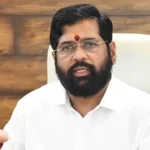In a village, a wise monk with superior religious and spiritual knowledge was known for his calm nature. He preached about the transformative power of words and how they could change lives.
Monk’s saying was, The words we say for ourselves or for others, we should be careful about. We should pay attention to what we say or what we do. During one of his sermons, a skeptical young man laughed loudly and called him a hypocrite dismissing the idea that words could shape one’s destiny. Undeterred, the monk invited the young man to test the power of words himself.
The young man shared a concerning situation about his elder brother, a notorious liar and lazy individual. Despite the family’s efforts, they couldn’t bring any positive change to his life. The monk agreed to help and went with the young man to meet his brother.
The monk looked carefully at his brother, who was sleeping under the shadow of the tree. When the monk got closer to him, he said, “Wake up, son. This is not a time to sleep; this is a time to wake up.” The brother was surprised and began to wonder who he was. He pondered, “Who is this person waking me up with such care and love? The villagers know me as a liar and lazy person. Who is this, showing affinity towards me?” He opened his eyes and asked, “Hey, master, who are you, and why are you here?” To this, the monk replied, “Son, I want to ask this of you. Who are you? You need to know this.” After listening, the brother laughed and said, “If you want to know about me, go to the village and ask the villagers who I am. They will say I’m lazy and a liar; they will blame me in various ways, talk negatively about me. You will believe and get to know who I am.
At the same time, the monk said, “Listen to me. I haven’t asked the villagers who you are. I was asking you—who are you? You told me about your habits; laziness is not your identity; it’s your habit. No person is inherently bad; their habits are. Therefore, son, you are not lazy and a liar; that’s just a habit. The villagers can’t understand these nuances.”
The boy was surprised after hearing all this because the villagers treated him as a fool, lazy person, using various derogatory terms. After listening to the monk’s words, tears welled up in the boy’s eyes. He immediately folded his hands at the feet of the monk and confessed the truth.
He mentioned that laziness was his habit, and he wanted to get rid of it, but he was stuck. He expressed his frustration, explaining that he had tried numerous solutions without success. He found it challenging to give up laziness, and whenever he attempted to work, his mind wandered, making concentration difficult. The monk suggested a solution but required the boy to meet him the next morning to learn about it.
As the night passed, the boy couldn’t sleep, contemplating the monk’s prescribed way to change his life. In the morning, he approached the monk and asked for guidance. The monk advised the boy to focus on the future when facing tough situations, rather than dwelling on the past. The key, the monk explained, was to believe that whatever would happen in the future was for the boy’s good.
Inspired and motivated, the brother embraced the monk’s teachings. Over time, with consistent effort and a shift in mindset, the brother successfully transformed his life. The village, once quick to judge, witnessed the positive change in the once-lazy and dishonest man, proving the monk’s teachings about the real power of words and thoughts.
You may like: unlocking-positivity-9-life-changing-mantras











[…] Real Power of Words- We say […]